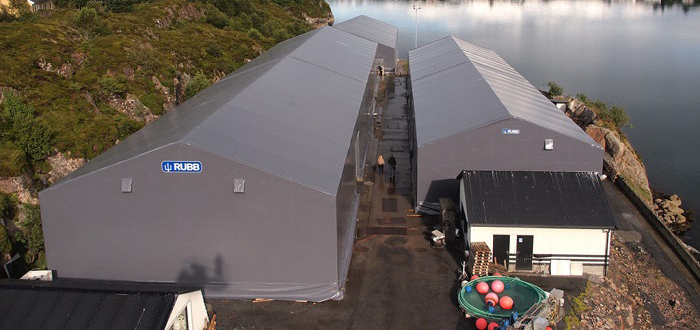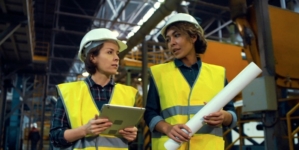-
ROSSLARE EUROPORT TARGETS HEALTH & SAFETY WITH CAMERA TELEMATICS PARTNERSHIP - 2 days ago
-
Landmark Study Reveals Wearable Robotics Significantly Boost Safety and Efficiency in Industrial Environments - July 24, 2024
-
Visku Tackle The Retail Seasonality Challenge One Pallet At A Time - July 22, 2024
-
KAMMAC AND BERGEN LOGISTICS STRENGTHEN FASHION & LIFESTYLE SERVICES IN THE UK - July 19, 2024
-
TENTBOX EXTENDS PARTNERSHIP WITH ARROWXL TO SUPPORT INCREASING DEMAND - July 17, 2024
-
The Perfume Shop improves customer journeys while driving profitability in partnership with Scurri - July 17, 2024
-
ZEROMISSION SECURES £2.3M ($3M) INVESTMENT TO ACCELERATE ELECTRIC FLEETS - July 16, 2024
-
BCMPA CELEBRATES SUCCESS OF 2024 CONFERENCE - July 15, 2024
-
Best of the Best: Jungheinrich Celebrates Triple International Award Win - July 12, 2024
-
GOPLASTICPALLETS.COM CALLS ON NEW CHANCELLOR RACHEL REEVES TO CONSIDER PLASTIC PACKAGING TAX REFORM - July 10, 2024
Pressure mounts on UK ports to enhance infrastructure capacity ahead of Brexit
Due to the uncertainty of Brexit and the impact on export and import of goods, UK ports are making preparations to support further checks by customs officers. A common issue for all ports, especially Dover, will be finding the space necessary to do so.
Many UK ports may have to consider temporary warehouses or custom designed modular storage buildings to maximise available space at their ports. This would not only help lower waiting times, but support the surrounding transport congestion areas. Another feasible idea would be to build new customs checkpoint facilities inland, allowing businesses to conduct clearance checks in secure locations away from busy border locations.
Flexibility, agility, capability and dependability are the key factors when looking at warehousing. The benefits of semi-permanent structures include fast design, manufacture and construction, with the flexibility to be adapted, modified, extended or relocated if needed. This allows clients to adapt quickly to change.
The BBC reported that Andrew Baxter, the managing director of the freight logistics company Europa Worldwide, told a House of Commons Committee: “If customs wanted to do a documentary check, that could delay it by up to three hours, and if there was an inspection of the goods, that could delay it by up to five hours.”
Talk of these delay times are alarming for all businesses involved in the import and export of goods, on top of potential increased tariffs. Then there is the issue of providing enough manpower to deal with the additional workload. According to HMRC chief executive Jon Thompson, around £300m will be needed to finance around 5,000 additional customs officials.
The government will also need to boost ongoing projects to improve the country’s road and rail infrastructure, in order to enhance connectivity between ports and the destination of handled freight.
Ian Hindmoor, Managing Director at Rubb Buildings Ltd, a UK manufacturer of custom designed modular storage buildings, commented: “Feedback from our customers suggests that they are planning for the future, to be able to maintain the flow of their production and fulfil the demand from their customers. Rubb storage facilities provide an alternative and sustainable solution to traditional storage warehouses.”

































